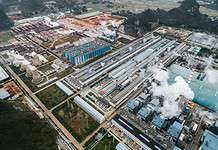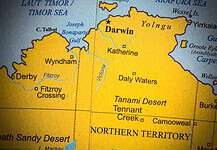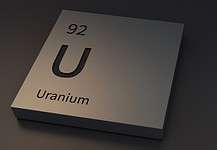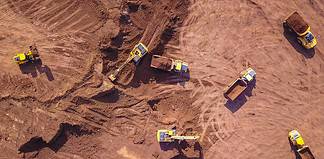By Rachel Dally-Watkins
4 November, 2015
THE Carmichael coal mine has been granted federal environmental re-approval subject to some of the strictest conditions “in Australian history”.
Environment minister Greg Hunt reinstated Adani’s mine and rail project in mid-October, two months after it was stripped of its previous approval through federal court proceedings.
The proposed $16.5 billion project in the Galilee Basin of Central Queensland would be subject to 36 environmental conditions, Mr Hunt said.
“I have the power to suspend or revoke the approval and strict penalties apply if there is a breach of the strict conditions,” he said.
“The conditions I have imposed take into account issues raised by the community and ensure that the proponent must meet the highest environmental standards.”
The conditions included implementing all advice from the Independent Expert Scientific Committee on CSG and large coal mining developments; protecting and improving 31,000 hectares of southern black throated finch habitat; committing $1 million across 10 years for research programs to improve conservation of threatened species in the Galilee Basin; and ensuring protection of Doongmabulla Springs through strict monitoring of groundwater.
“The rigorous conditions will protect threatened species and provide long-term benefits for the environment through the development of an offset package,” Mr Hunt said.
The original environmental approval for Carmichael was overturned amid concerns Mr Hunt had not properly considered advice on two threatened species – the yakka skink and the ornamental snake.
The latest decision reportedly took additional information from both Adani and community groups into consideration.
The Mackay Conservation Group, who initiated the federal court case that saw the initial approval overturned, claimed Mr Hunt’s latest ruling had risked “threatened species, precious groundwater, the global climate and taxpayers’ money”.
“[Mr] Hunt’s new conditions do not adequately deal with the seriousness of the implications of this mine,” the group stated.
“Simply put, these impacts are very serious, and can’t be offset. The mine should have been refused.
“With Adani’s job figures revealed to be fictitious and the global financial markets backing away from coal and towards renewables, the sensible decision from Minister Hunt would have been to reject this mine with all its unattractive baggage.”
Adani and the Queensland Resources Council both welcomed the decision.
“It is really no surprise though that the projects were approved because all of the necessary environmental protections were in already in place,” Queensland Resources Council chief executive Michael Roche said.
“The exploitation of the technical legal loophole that caused the delay was merely a tactic used by green activists in an attempt to thwart efforts to develop the Galilee Basin.
“The activists’ delaying tactics are also preventing the creation of jobs and the financial benefits that flow into regional communities as a direct result of the project, and royalties into the state coffers that help pay for schools, hospitals, police and roads.”
The $16.5 billion Carmichael project is expected to produce up to 60 million tonnes per annum of thermal coal for power plants in India.








































